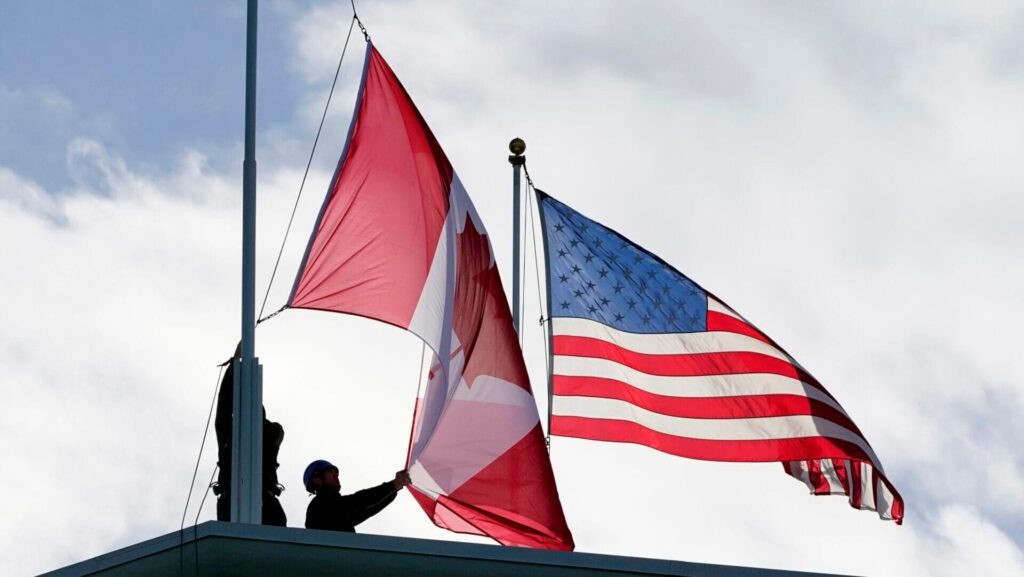OTTAWA (CTV Network) — Canada is dropping its countertariffs on the American goods that are covered by the free-trade agreement between the two countries, amid the ongoing trade war with the United States, Prime Minister Mark Carney said Friday.
Carney made the announcement during a news conference Friday, following a virtual meeting of his cabinet, and the day after a discussion with U.S. President Donald Trump.
Canada’s countertariffs on U.S. steel, aluminum, and autos are not changing, Carney said.
When asked whether he received assurances from Trump that scrapping countermeasures will kickstart negotiations on a new trade and security deal, Carney said: “yes.”
Canada-U.S. Trade Minister Dominic LeBlanc, meanwhile, is set to brief the Liberal caucus on the latest early this afternoon, sources tell CTV News.
In a statement to CTV News on Friday, a White House official said the U.S. welcomes the move, calling it “long overdue.”
The official added they look forward to “continuing our discussions with Canada on the administration’s trade and national security concerns.”
Canada and the U.S. have been in a protracted trade war since February, when Trump imposed sweeping tariffs on Canadian goods, claiming they were related to border security. In the months since, he’s stacked additional sectoral tariffs on steel and aluminum, copper and autos.
Products that are covered by the Canada-U.S.-Mexico free trade agreement — known as CUSMA — are exempt from the initial slate of border-related levies.
Speaking to reporters on Friday, Carney insisted the move to drop some countertariffs is meant to “match” U.S. levies, by implementing a carve-out for goods covered by CUSMA. But, while the American administration has imposed 50 per cent tariffs on steel and aluminum, Canada’s countertariffs on those industries will remain at 25 per cent.
The government has also implemented measures to support the industries most affected by the trade dispute, and has been working to diversify its export markets to help insulate the Canadian economy from an over-reliance on the United States.
Several provinces, meanwhile, have removed U.S. alcohol from liquor store shelves, and Canadians en masse have reduced travel south of the border. Trump and his team have criticized those actions, according to U.S. ambassador to Canada Pete Hoekstra, calling the country “nasty” to deal with.
About The Author
You may also like
-
Colts planning to keep top 2 QBs on the bench for preseason finale
-
Kenneth Butler Memorial Soup Kitchen serves hope beyond meals
-
Johnson County billboard has warning for criminals
-
WISH-TV’s ‘WISH You Were Here’ at the Greenfield Concert Series in Depot Street Park
-
Indianapolis Public Schools to divest 2 abandoned buildings

